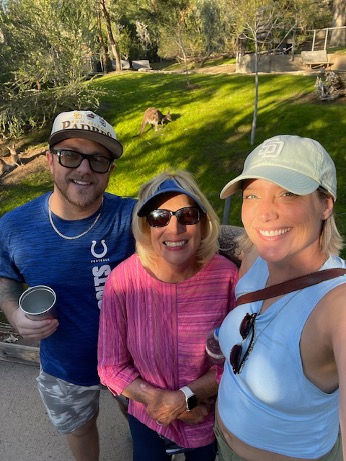Tip # 1 Compassionate Listening
- annerichardson58
- Jun 5, 2025
- 2 min read
For the month of June, I will blog on how to accompany a survivor of sexual trauma. Many have told me the hurtful things people say and do, including those in the church. Although unintentional, most people do not know what to do or say. Here are some tips to help you come alongside a survivor of sexual trauma.
Tip # 1 Compassionate Listening
Just listen. You don’t need a degree to offer compassionate listening.
The temptation for many of us is to fix or advise. Or to avoid hearing someone’s pain. Sexual abuse is an uncomfortable topic. Do not offer advice or fixing.
Deeply listen without interruption. Gaze upon them in a way that reflects a genuine sense of their own dignity and validates being heard.
Offer a presence that reflects a posture of openness, hospitality, non-judgment, and empowerment.
Maintain eye contact.
Nod your head occasionally.
Allow moments of silence.
Allow tears.
Do not touch or hug unless you ask permission. A handshake is appropriate.
Put your own thoughts aside while listening. In spiritual direction, we call this Bracketing.
Don’t interrupt and make it about you or someone else you know.
Try to empathize. You may not have been sexually abused; however, we all have been wounded and experienced pain.
If all you do is offer compassionate listening, that is a tremendous gift. We live in a world where deep listening is a rare commodity.
Being heard is priceless.

Offer a compassion statement.
After you listen to a survivor’s story, a simple kind, compassionate statement lets them know you care.
“I am so sorry that happened to you.”
“That must have been painful for you.”
“I can’t imagine what you went through.”
“Thank you, for sharing your story with me.”
“How can I be here for you?”
“I care about you.”
“I am here for you.”
“I admire your courage to share your story.”
“You did the best you could with what you knew how.”
“It was not your fault.”
If he or she brings the trauma up, respond compassionately by saying: “I am so sorry that happened to you.” The first person who said that to me was my therapist. I felt her genuine compassion, which gave me permission to open up.
Since then, I say the same to others when they bring up their trauma. Several women have told me I was the first person who ever expressed sorrow for what happened to them. This genuine empathy is not to be confused with pity, which can play into a victim mentality. Or sympathy, which sometimes can feed the need for attention.
Empathy is defined as putting yourself in the shoes of another. Perhaps you have not experienced sexual trauma. However, you have known pain, hurt, and brokenness. Try to connect in that place.




Comments